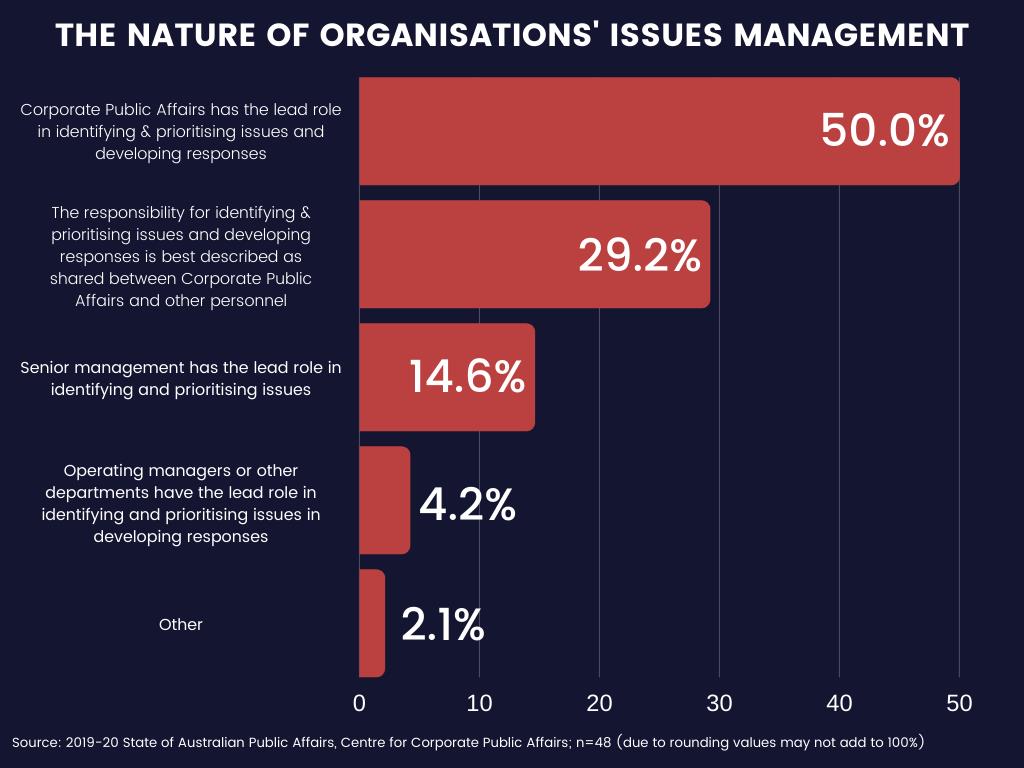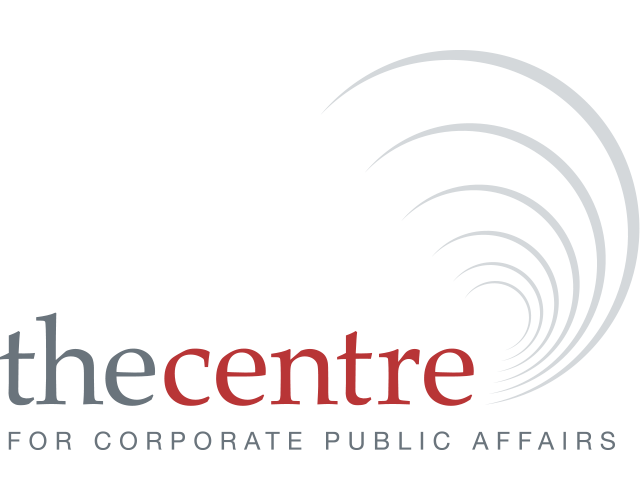Issues Management
Issues and crisis management are among the most critical strategic and tactical aspects of practice in the corporate public affairs management function. It is also an area of corporate public affairs practice that is more frequently delivered in partnership with other business and line management functions.
While some corporations and entities manage socio-political issues in a single discipline (sub-function), issues management is more frequently an area of practice.
In markets such as Australia, Asia (but not China), the UK, Germany, Canada, France, and India, socio-political issues management is cross divisional and cross functional, but very frequently coordinated by corporate public affairs, which also stewards many of the tools to effectively manage issues.
What is an issue? According to one of the world’s leading authorities and thinkers on issues management, University of Maine Professor and Centre for Corporate Public Affairs Research Fellow John Mahon PhD, an issue is a disagreement about facts, procedures, policies, direction, allocation or resources, status, or power.
Business, government, politics, communities, and even family and friendship units all have issues to manage. Known and long-standing issues; issues that arise from nowhere and that have not been imagined (Black Swan events); issues that may occur but there is no certainty when they will happen.
The interaction of business, government, the not-for-profit sector (including advocacy interest groups), academia communities, and individuals is punctuated by disagreements or events that morph into issues that, if they are not managed, can generate hindrances and barriers to entities and individuals realising aspirations, income, profit, quality of life, and preferred outcomes.
Issues management, when practiced well, is a tool in the hands of management that can proactively deliver strategy, take advantage of opportunities, and mitigate risk.
When not proactive, or not practiced well (or at all), issues management can derail strategy and its realisation, destroy value, and disadvantage individuals, interests, community good, and natural built environments.

In most cases an ‘issue’ in a corporation or organisation is not ‘owned’ by corporate public affairs, but by the head/manager of the business unit or division in which the profit and loss for the issue resides, be the issue operational or reputation related.
However, it is the corporate public affairs that will frequently convene a cross-management team to manage a significant issue, and apply and wield public affairs tools to manage the issues, including employee communications, media relations, stakeholder engagement, political advice and engagement, and regulatory engagement.
Issues management, the art and practice of which has been the preserve of corporations, industry groups, and many governments since it become a management science in the 1980s – 2000s, is now ‘democratised’, is an offensive tool in the hands of management to deliver strategy for non-government entities including not-for-profit entities and community groups.
The Centre’s 2019 – 2020 State of Public Affairs in Australia found a vast majority of respondent organisations (79 per cent) with ‘highly developed’ or ‘somewhat developed’ issues management capability. It is extremely rare to find an organisation in this area with no issues management policies, procedures, or systems.
These figures are similar to those in the US, Europe, and across the rest of Asia Pacific.
Corporations operating in high socio-political sectors (chemicals, mining and resources, alcohol and beverages, tobacco, forestry) tend to have long-standing and highly developed issues management capability and experience.
The nature of issues management within organisations has not shifted substantially since 2015, but has sustained its solid base; corporate public affairs still plays the lead role in identifying and prioritising issues and in developing responses (50 per cent).
Sixty per cent of head of corporate affairs respondents to the survey underpinning our State of Corporate Public Affairs research said they regularly allocate accountability for issues management to non-corporate public affairs managers.
Although issues management is not a component of undergraduate business or many post-graduate business school curricula, the components and art of issues management is taught in executive education modules by organisations such as the Centre for Corporate Public Affairs, or embedded in in-house professional development programs in corporations, industry associations, and government agencies of state.
Related resources from the Centre's Knowlede Centre...

Top CEOs, directors call for clearer COVID-19 Plan
Senior executives of some of Australia’s largest companies have called for governments to provide a clearer long-term blueprint for dealing with the coronavirus pandemic. “I would say that all business leaders a looking...
NEWS-DIGEST
Predictions for 2021
In this episode, Centre Analyst Tristan Aliferis interviews the Centre's Executive Director Wayne Burns, on the five predictions he has made for the corporate public affairs function in 2021, along with a review on his 2020...
PODCASTExplore the Centre’s Knowledge Centre
Browse more Issues Management resources in the Knowledge Centre.
